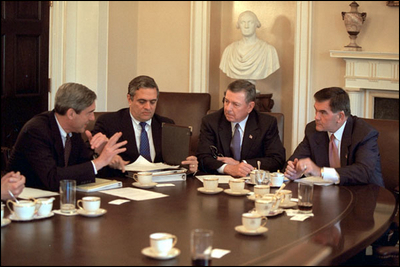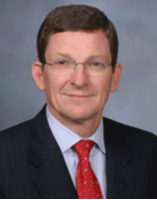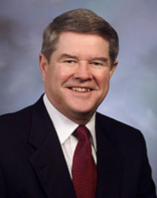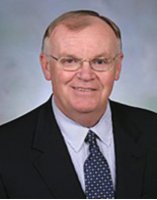Valerie Plame is now “Fair Game”
Hugo Floriani, Investigative Reporter

Valerie Plame Wilson is now fair game for inquires by refusing to answer even the simplest of questions about the story and trial associated with her name.
So we ask: Valerie, how long have you known former Undersecretary of State Marc Grossman?
Seems like a simple question, right?
Well, maybe not. You see, it turns out that, according to court records in U.S. v Libby, the Wilson's have long known Grossman.
According to sworn testimony in a deposition of Sibel Edmonds in 2009, Grossman was the man who outed Brewster Jennings & Associates as a CIA front organization, and Valerie Plame, who worked there, as a CIA employee. That happened two years before Lewis "Scooter" Libby asked Grossman about Joe Wilson and about his famous trip to the nation of Niger on behalf of senior officials in the Directorate of Operations Counter-proliferation Division of the CIA.
Wilson's trip to Niger in the spring of 2002 was about determining the veracity of Saddam Hussein's alleged attempt to purchase enriched uranium (yellowcake).
For you true-history buffs, here’s the story around that event:
In the Summer of 2001, Marc Grossman, a friend of the Wilson's, illegally, according to the Intelligence Identities Protection Act, divulged to Turkish operatives that Brewster Jennings, and consequently Valerie Plame who worked there, were associated with the CIA. This is according to sworn testimony by Edmonds.
Then, in the spring of 2002, the CIA asked Valerie Plame's husband, Joe Wilson, to go to Niger and determine if Saddam Hussein purchased yellowcake.
On September 26, 2003, the CIA asked the Department of Justice to investigate who outed Brewster Jennings and Valerie Plame as CIA. This came after Plame had already been outed by Grossman in 2001.
On October 1, 2003, Grossman's boss at the State Department, Deputy Secretary Richard Armitage, took responsibility for outing Plame as CIA; however, he was told by the Dept. of Justice to keep the information secret..
On December 30, 2003, then U.S. Attorney Patrick Fitzgerald was appointed "Special Counsel" by current FBI Director Nominee James B. Comey. Fitzgerald then went on a forty-month, taxpayer-funded fishing trip that caught Libby for allegedly lying to the FBI.
It’s clear why Plame won’t answer the question: How long have you known former Undersecretary of State Marc Grossman? Doing so would reveal how long she knew the man who actually blew her cover as a CIA “operative.” And that person wasn’t Libby or the late columnist, Robert Novak.
It was Mark Grossman.
All this begs the question: So what was the phony witch hunt that netted Libby really all about?
At IP2P, we’re trying to find out the answer to that question.
The truth about the Valerie Plame case. (10 years later)
Hugo Floriani, Investigative Reporter
We're going into the final year of a decade since the Valerie Plame case burst into the national news, and still the truth remains untold by key persons involved. Why is that?

Is Richard Armitage telling the truth when he says he didn't tell President Bush that he was the leaker in the Valerie Plame case because of U.S Attorney Patrick Fitzgerald?
In an interview with CBS News national security correspondent David Martin, former Deputy Secretary of State Richard Armitage said he didn't come forward as the source of the leak because "the special counsel, once he was appointed, asked me not to discuss this and I honored his request".
Patrick Fitzgerald was appointed special counsel on December 30, 2003.
Let's examine Armitage's claims.
Armitage has stated that reporter Bob Novak's column, published October 1,2003, caused him to (1) immediately meet with the FBI and confess to being the leaker, and (2) then call Secretary of State Colin Powell and tell him he was Novak's source and, therefore, responsible for leaking the identity of Valerie Plame as a CIA employee.
According to court records Richard Armitage went to Marc Grossman, the Undersecretary of State, on the evening of October 16, 2003 and told Grossman that he, Armitage, was the leaker. Armitage did this knowing that Grossman was scheduled to be questioned by the FBI the next day.
Undersecretary Marc Grossman is the author of the memo that started it all by identifying who Valerie Plame was to his superiors at the State Department - Armitage and Powell.
So, what do we know?
(1) We know that as of Oct. 16, 2003 the top three officials at the State Department and the FBI knew that Richard Armitage was the person who divulged Valerie Plame's identity to the press.
(2) We know that, between Oct. 16 - Dec. 30, it was not Patrick Fitzgerald who was keeping the three top officials in the U.S. State Department from divulging that Armitage was the leaker.
And (3) we know, that, if in the time between Oct. 16 - Dec 30, any one of the State Departments top three officials (Powell, Armitage or Grossman) or the FBI would have gone public with what they knew, Patrick Fitzgerald would have never been appointed Special Counsel.
Consequently, New York Times reporter Judith Miller would not have spent nearly three months in jail, and Vice President Dick Cheney's Chief of Staff, Scooter Libby, would not have been prosecuted.
As this unfolds, ponder this:
Did our current FBI director Robert Mueller keep the identity of the "leaker" Richard Armitage from his boss, Attorney General John Ashcroft?
And, if not, did John Ashcroft neglect to tell President George W. Bush?
To be continued....
“Golden,” the whitewashing of a Department of Justice crime spree
Ernie Souchak, Editor-in-Chief, Illinois PayToPlay & Hugo Floriani, Investigative Reporter
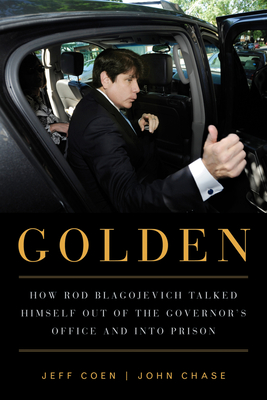
Chicago Tribune reporters Jeff Coen and John Chase wrote a 486-pages book that packs tedious and mundane details about former Illinois Governor Rod Blagojevich’s life, from birth to prison, around one key chapter that documents the role of former U.S. Attorney Patrick Fitzgerald in leaking information about his investigation of the ex-governor known nationwide as “Blago”.
The whitewash begins on the second page of the foreword entitled “Authors’ Note”: “We quote heavily from the recordings that federal agents made on phones used by the governor and others. All of those quotes come from transcripts of those phone conversations or the recordings themselves. We are grateful to those who provided case material that was outside of the public record.” (For ease of reading, we will italicize all quotations from the book.)
Those persons “who provided case material that was outside of the public record” remain unidentified throughout the book. But it soon becomes clear where they worked.
In an article written by Ernie Souchak posted on this website last September 14, we noted how the judge’s protective order, covering the transcripts of Blago’s phone conversations, stipulated that nothing prohibited Blago and his lawyers from telling his version of those recorded conversations. Blago and his attorneys were, though, ordered not to disseminate the transcripts that the feds gave them. Only the feds had permission to do that.
So, apparently, Coen/Chase secured those transcripts and recordings mentioned in the “Authors’ Note” from the feds. Here’s a question: Why was the information given to them?
Hold that thought.
The problem for the book’s core narrative – the arrest, trial and conviction of Blago – unfolds in Chapter 14 (pp. 257-295) entitled “I’ve got this thing…”
Background
On October 16, 2011, we concluded a ten-article series concerning U.S. Attorney Patrick Fitzgerald, which first posted here in on September 19, 2011, with this summary:
“So, what are the facts and circumstances that we know that collectively tend to prove, or sustain by their consistency…the hypothesis that Patrick Fitzgerald is a politically-driven, not jurisprudence-driven, prosecutor whose image as an intrepid, unbiased crime fighter is a media-created fabrication?
Here are a few headlines from Parts 1-9:
Fitzgerald acknowledged that someone leaked information to the Chicago Tribune, via a reporter for the Chicago Tribune, while the reporter, John Chase, sat mute in the front row of the news conference where the arrest of Blago was described as an effort to stop a crime spree. (Chase has told a source known to this writer that he would not identify who leaked him the information on First Amendment grounds.)
In fact, (1) Blago’s crime spree had, with Fitzgerald’s knowledge, been going on for several years. (2) Chase has not been called to account for tipping off Blago that his conversations were being recorded by the feds. (3) Eric Holder’s Department of Selective Justice has taken no steps – like that taken by Fitzgerald when he jailed Judith Miller of the New York Times in the Valerie Plame Case – to force Chase to reveal the source of the leak. And, (4) Fitz’s demeanor in discussing the leak in a press conference can be accurately described as disinterested.
The urgency to arrest Blago was manufactured out of whole cloth. The leak had to originate out of the DoJ. And, the closest outlet for the DoJ to the Chicago Tribune is Fitzgerald’s office. You connect the dots.
In retrospect, we know now that Richard Armitage was the confessed leaker in the Valerie Plame Case. We also know that Fitzgerald knew of Armitage’s confession before undertaking a long and costly investigation that convicted a key staff member of Vice President Cheney of a crime not connected to the Plame leak. And, that this media event, upon which the foundation of the Untouchable myth was built by the main stream media, was politically-driven.
The Plame “investigation” boiled down to a surrogate WWF-like wrestling match between two Big Beltway Boys: Armitage representing Powell – Libby for Cheney. With Fitzgerald as the biased referee. And, it will be so chronicled by unbiased historians in the future.
The arrest of Blago was timed, not to stop a crime spree, or the selling of a Senate seat – since the latter notion is built on the myth that, once Blago got paid for appointing someone, the act was immediate and irrevocable. The arrest was timed to save Congressmen Jesse Jackson, Jr., from criminal prosecution for bribing a governor in order to receive a Senate appointment. Connect the dots. It was about saving J.J., Junior.”
Chapter 14 – The Whitewash
The narrative here is significant, not just for what it reveals, but more for what it conceals.
The authors do not reveal the source for the information that Chase telephonically conveyed to Blago’s Spokesman, Lucio Guerrero, at approximately 10:30 p.m., Friday, December 4, 2008, namely, that the feds were listening in on Blago’s phone conversations.
Consequently, this question remains unanswered: Who leaked the information that Blago’s phone conversations were being wiretapped by the feds to the Tribune and Chase? Plus, why was that revelation leaked to the paper?
Then, why did Fitzgerald show no interest in tracking down the leaker?
We’re no closer today to answers to those questions after the 486 pages of whitewash.
Now, for the information in Chapter 14 that substantiates our October 2011 summary above:
Page 264: “Again, prosecutors noted the gravity of what Blagojevich had said. They were aware of the Balanoff meeting but had not recorded it.” (Tom Balanoff is president of the Service Employees International Union, Illinois Council, and the Vice President of its International Executive Board.)
How did the Coen/Chase know this information unless someone in the U.S. Attorney’s office gave them a blow-by-blow description of the investigation? Of course that’s what happened. The authors were scripted by the feds.
Page 267: “At the FBI’s listening room, there continued to be a mixture of thrilled disbelief and newfound resolve at what was being caught on the recordings. Agents believed they were capturing the sitting governor in incriminating conversations, and they played the calls for supervisors.
At one point, the FBI’s national director, Robert Mueller, was in town for a Chicago event. Having heard about the success of the Blagojevich operation, Mueller wanted to hear some of the recordings for himself. He stopped at the FBI’s Chicago headquarters on Roosevelt Road on the West Side near Ogden Avenue and took a seat in Rob Grant’s office. Agents had put together a disc of some of their favorite snippets for Mueller to hear.
Who was the guy dropping the F-Bombs? Mueller asked.
Well, that was the governor of Illinois, agents explained.
“You’ve got to be kidding me,” Mueller said, shaking his head, clearly pleased with how investigators were doing.”
This sounds like the testimony of an eyewitness to the event, given all the illustrative details. That eyewitness would be an employee of the FBI, or, someone from Fitzgerald’s office involved in the USAO’s investigation of Blago. This information clearly didn’t come from an audio tape or transcript of one of Blago’s intercepted calls, or from the building’s janitor.
It comes from a source intimately involved in the investigation.
Page 281: This portion of Chapter 14 explains the nature of the alleged urgency that caused the USAO to arrest Blago to, as Fitzgerald later claimed, stop an on-going crime spree.
“Fitzgerald had grown concerned that they had a sitting governor who had yet to make an appointment after working for weeks to see what he could get for himself in a deal for the Senate seat. They could let things go a little further, but it was starting to get risky that Blagojevichwould actually make a choice. Schar [Reid Schar, an Assistant U.S. Attorney, NDIL] said it would be derelict of those in the room to allow Blagojevich to make a decision. Everyone in the meeting believed the process had been corrupted, no matter how Blagojevich finally acted. To do something before he made a pick and out the investigation would at least make that corruption known, and the political could react to any pick by the governor.
In the end, there was agreement. Very soon, they would act, and likely on the morning of December 9, a Tuesday, the day before Blagojevich’s birthday and after a possible meeting the governor had been talking about with Jesse Jackson, Jr.”
What does “at least make that corruption known” mean? The USAO had been investigating Blago for years, and had compiled a substantial amount of evidence of corruption. At least, the goal should have been to arrest Blago when he accepted a bribe, and, also, arrest whoever paidthe bribe.
The real “risk” in letting Blago close a deal with the briber(s) negotiating with him on behalf of Jesse Jackson, Jr., was that they, too, would be implicated in a crime along with Blago. Whatever happened to the notion of intent to commit a crime? Blago went to jail – the briber(s) skated. That was the goal.
Pages 286-288: “’Jackson was the ‘uber African American,’ Blagojevich reminded Harris. He would consider what it would mean in black politics and how it would strengthen him, Blagojevich said, and don’t forget, third parties had offered him $1.5 million in fund-raising help.” (p. 286)
“’There’s tangible, concrete, tangible stuff from [Jackson’s] supporters,’ Blagojevich said, as Yang [Fred Yang, a pollster hired by Blagojevich] pressed him for more detail. ‘Well like, you know. You know what I’m talking about,’ the governor finally told him. ‘Specific amounts and everything.’” (p. 287)
“When prosecutors heard Blagojevich make the ‘tangible’ remark, they believed the Jackson proposal was in fact the way the governor was going to go.” (p. 288)
So, according to Coen/Chase, the feds believed that Blago was about to do a deal that would yield him $1.5 million for appointing Jesse Jackson, Jr. as a U.S. Senator from Illinois. That means that Blago was arrested to stop the commission of a specific crime, rather than to stop a crime spree.
If the USAO would have waited, both the bribee and the briber would have been caught and prosecuted. But the trap was sprung prematurely – for a reason.
Robert Blagojevich had a meeting scheduled with Jackson's money man Raghuveer Nayak on Friday, December 5. After learning from Chase, on the evening of December 4, that his conversations were being intercepted by the feds, Blago instructed his brother Robert to cancel that meeting.
The Duck Rule
If it looks like a duck; waddles like a duck; and quacks like a duck – face it, it’s a duck.
As we wrote back in October 2011: “The arrest was timed to save Congressmen Jesse Jackson, Jr. from criminal prosecution for bribing a governor in order to receive a Senate appointment. Connect the dots. It was about saving J.J., Junior.”
Remember that Jackson was the ’08 Co-chair of Obama’s Presidential Campaign Committee.
Conclusion
The book entitled Golden, written by two Chicago Tribune reporters who were granted special access to information coming from inside the investigation, is a 486-page apologia in defense of an improbable explanation behind the timing of the arrest of former Illinois Governor Rod Blagojevich.
It is a duck.
Was there a quid pro quo deal here? Did the USAO inside-leaker(s) say, “Guys, we’ll give you exclusive access to all this information, and in exchange you tell the story the way we want it told. We gotta deal?”
Don’t forget that Roland Burris, the man Blago appointed to the U.S. Senate, was the 60th vote in favor of ObamaCare. Had Blago, and those bribing him, both been arrested after the money was exchanged, would there have even been a second Senator from Illinois in the U.S. Senate when the ObamaCare vote was taken?


